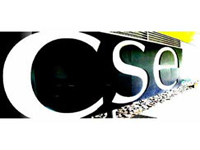| Information Technology - 8684 |
|
||||||||||||||||||||||||||||||||||||||||||||||||||||

Program Summary
Formerly Master of Engineering Science in Computer Science and Engineering, program 8685
The Master of Information Technology is designed for students with a substantial and broad computing background. Students are expected to have knowledge of all foundation (Group A) and most core courses (Groups B/C) before they commence their postgraduate studies. Program Objectives and Learning Outcomes The aim of this program is to give computing graduates a chance to deepen their knowledge and to extend it in new directions. In addition, there is some scope to undertake courses not studied in their undergraduate degree, to round out their computing background.
Students complete the below Information Technology majors with the following restrictions:
Note: It is possible to complete the program using only Group D courses. Up to one Group B/C course can be substituted for a non-advanced UNSW free elective. Up to one Group D course can be substituted for a non-CSE course of equivalent level, more may be substituted if specified as part of a major. Major(s) Students who are not following the default Information Technology major are required to take specific courses to satisfy their chosen major. COMPAS8684 - Autonomous Systems COMPBS8684 - Bioinformatics COMPCS8684 - Information Technoloyg (default major) COMPDS8684 - Database Systems COMPES8684 - e-Commerce Systems COMPIS8684 - Internetworking COMPKS8684 - Knowledge Systems & Data Mining Course Groups Course availability is subject to timetabling and teaching resources. Extended versions of any course may be used instead. Group B and C - Core Computing Group B/C courses constitute the core of the IT discipline. Graduates of a CSE postgraduate coursework program should know at least five of these areas.
Note: COMP9222 can be replaced by COMP9221 if this course has already been completed.
Group B/C - Electives Group B/C elective courses constitute important topics in IT, but have a level of difficulty somewhere between Group A and Group B/C courses.
Group D - Advanced Electives
Group D courses are advanced electives that can be used by a student to gain specialisation in one of several areas of Computing and IT. These courses will be most attractive to MIT students who have an extensive background in computing already.
Entry Requirements
There are three methods of entry into the MIT program.
Applicants for this degree must have completed studies in a broad range of computing areas.
Project Option The free elective and non-CSE course can be replaced with a small research project. Students must obtain agreement from a CSE academic supervisor, have a distinction average, and the project must be completed in final the semester. The project is non-graded, and students will recieve a satisfactory or unsatisfactory result.
Students are advised to consult:
Academic Standing Rules - Postgraduate Students Please contact the School of CSE for advice or clarification of the Academic Rules relating to this program. For information regarding fees for UNSW programs, please refer to the following web-page: https://my.unsw.edu.au/student/fees/FeesMainPage.html
Email the CSE Student Office: postgrad@cse
Area(s) of Specialisation |
|||||||||||||||||||||||||||||||||||||||||||||||||||||

| Contacts | Library | myUNSW | WebCT |